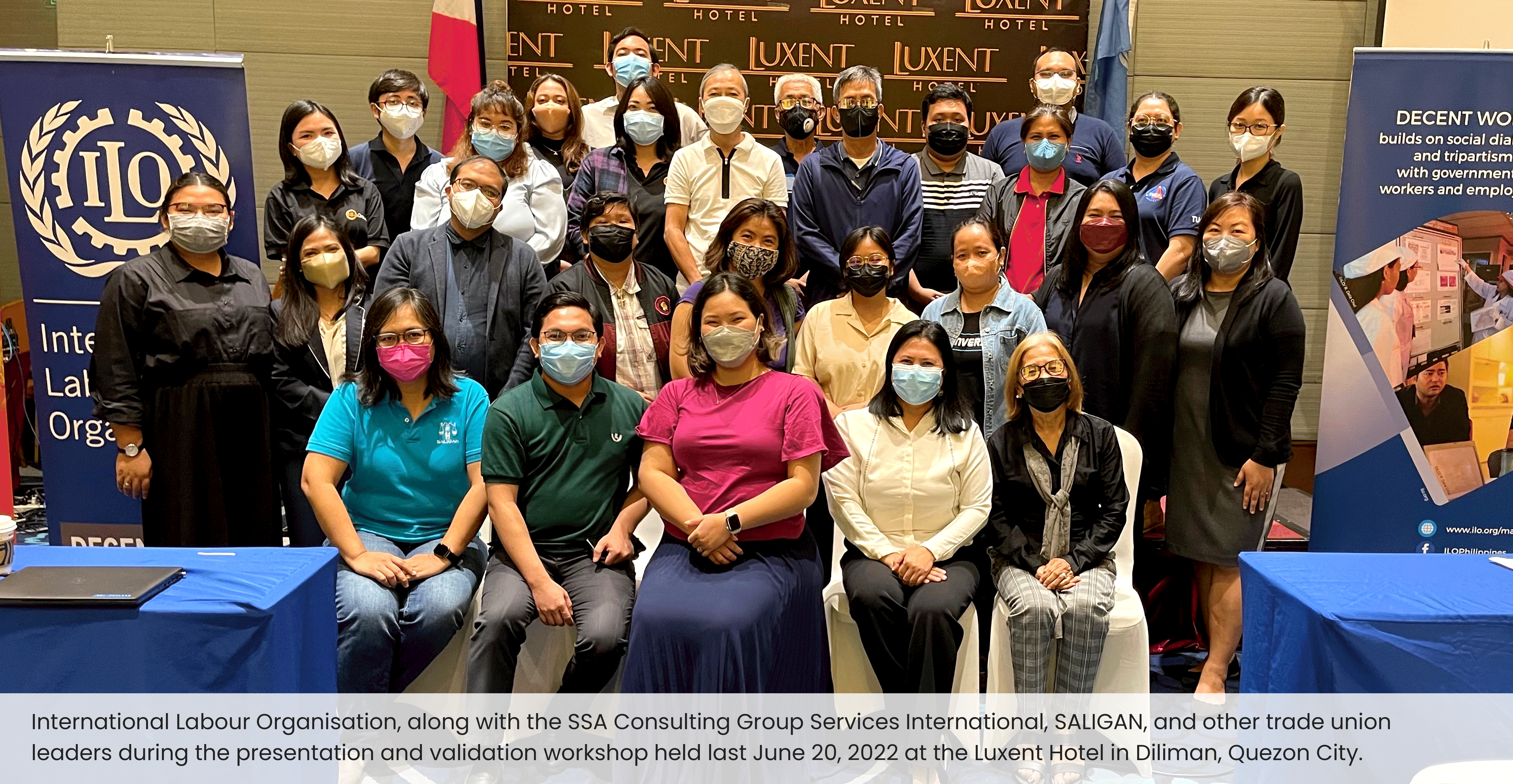International Labour Organisation to Launch an e-Learning Module to Assist Filipino Workers and Trade Unions

In 2019, the International Labour Organisation (ILO) produced a training manual on Freedom of Association and Collective Bargaining (FoACB) in order to provide Filipino workers and trade unions a tool to better understand their rights.
However, considering the impact of COVID-19 and the changes it brought to the workplace, this training manual needed to be digitised.
As a result, the International Labour Organisation, in collaboration with the SSA Consulting Group Services International and the Sentro ng Alternatibong Lingap Panligal (SALIGAN), created a project to develop an e-Learning Manual for Workers on Case Documentation and Monitoring of Violations on Freedom of Association and Collective Bargaining (FoACB).
This project, funded by the ILO and the European Union (EU), aimed to increase social dialogue among workers and strengthen the application of International Labour Standards (ILS) in the Philippines, specifically on Freedom of Association and Collective Bargaining, which refers to the ability of workers to freely organise and use their collective power to seek enhanced health and safety at the workplace, the right not to be discriminated against, and freedom from forced labour. The project also focused on updating and digitising the previous worker’s FoACB training manual to better address the changes brought about by the pandemic.
During the presentation and validation workshop on the ILO e-Learning Management System on Case Documentation and FoACB Monitoring that was held last June 20, 2022 at the Luxent Hotel in Diliman, Quezon City, Mr. Bryan M. Balco, the Project Manager of the ILO Trade for Decent Work, addressed the project’s further enhancements.
He mentioned that one of the project’s future goals is to expand membership in unions to enhance not only the numbers but also diversity among trade union members. He also emphasised the need to create a training module in Filipino since there’s only one in English as of this moment.
Ms. Lauren Borja, a Senior Consultant at SSA Group, also emphasised that the goal of the digitalisation is to make the modules accessible to everyone and provide various learning styles suited to Filipino workers and labour groups. While Mr. Jonathan Ramos, a Software and Web Developer from the SSA Group, provided a thorough demonstration of the ILO FoA Module LMS. He discussed how to use the e-Learning platform, from signing up to accessing the modules, as well as the features and functionalities found within it.
With the launch of the ILO project this year, it aims not only to enhance labour rights in the Philippines and achieve industrial peace, but also for trade unions to have their own training eventually.
Related Topics

FOBO: The Fear of Becoming Obsolete (Infographic)
Experiencing a sense of being left behind and finding it...

Discovering No-Code Development
Picture a scenario where you have a small clothing business...

The Rise of AI-Powered Web Apps and Their Ethical Implications
AI is transforming the way we interact with web apps,...

3 Signs Your Business Needs a Web Application
As your business grows, you may face challenges in managing...

Embracing the Human Element in the Era of Artificial Intelligence
In 2022, the introduction of ChatGPT garnered global interest and...